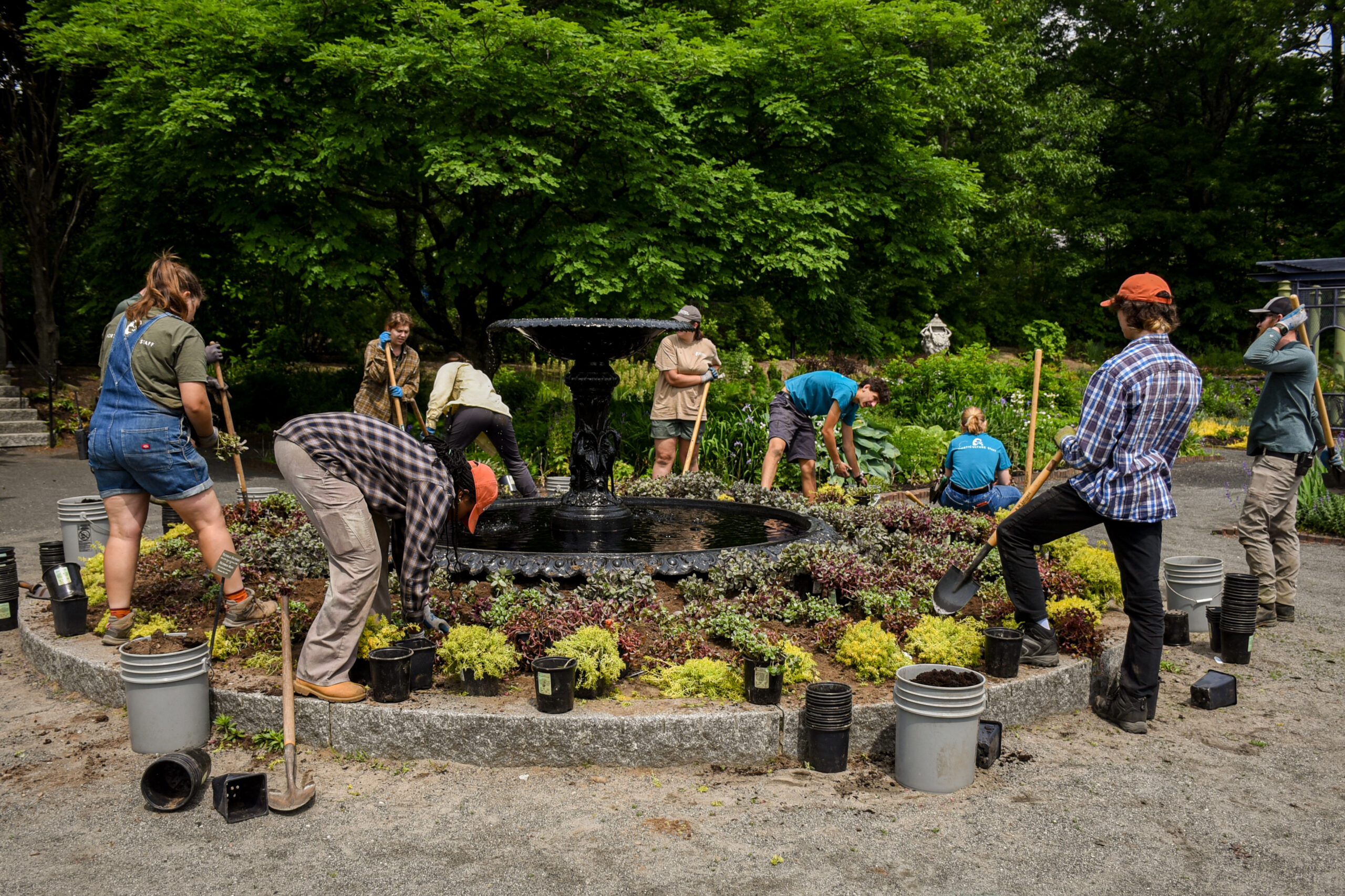By Megan Stouffer, New England Botanic Garden Staff
July 2023
As July rolls around, the phrase ‘Plastic Free July’ may once again surface as a popular topic across news outlets, social media, and social circles. Plastic Free July—a month when individuals and organizations challenge themselves to reduce plastic use—attempts to make limiting reliance on plastics fun and enjoyable while, hopefully, creating habits that remove plastics from everyday use altogether.
Millions around the world get involved in the challenge by swapping their disposable coffee cups for travel mugs, bringing reusable utensils instead of using disposable ones, and taking their own bags to grocery stores, forgoing the plastic ones. While the campaign, spearheaded by the Plastic Free Foundation, originated in 2011, the problem of plastic use has been discussed for decades. Each year, the world produces over 400 million tons of plastic waste. Of that waste, more than 40% is single-use and a resounding 79% will sit in landfills or the natural environment. Only 9% of all plastic ever created has been recycled. And if this weren’t bad enough, plastic production requires petroleum, a fossil fuel that accelerates climate change.
 New England Botanic Garden strives to do its part in the fight to curb greenhouse gas emissions and better steward the environment, but plastics present one of the biggest challenges to our sustainability efforts. Items such as plant pots and other packaging materials are not easily recyclable, nor do they come with easily available plastic-free alternatives. For our horticulture team, the alternatives they test largely fail to meet their needs. Biodegradable plant pots, for example, often fall apart in the greenhouse before the sprouted plants can be transferred into garden beds.
New England Botanic Garden strives to do its part in the fight to curb greenhouse gas emissions and better steward the environment, but plastics present one of the biggest challenges to our sustainability efforts. Items such as plant pots and other packaging materials are not easily recyclable, nor do they come with easily available plastic-free alternatives. For our horticulture team, the alternatives they test largely fail to meet their needs. Biodegradable plant pots, for example, often fall apart in the greenhouse before the sprouted plants can be transferred into garden beds.
We aren’t without success. The Garden has removed all plastic bottles from the grounds, prompting guests and staff alike to bring their own bottles. (Around the world, almost a million plastic water bottles are sold each minute.) The café uses biodegradable utensils and dishware. The Garden Shop has also removed plastic bags from their inventory. And the horticulture team does their best in reusing plastic pots, often collecting and donating them to local garden clubs, in order to decrease the amount that ends up in the trash. However, all this work still falls short when individual users, rather than producers, carry the most responsibility for where plastics end up.
The current system of plastics is a broken one. Currently, not everyone has equal access, opportunity, and resources to choose options that are more sustainable or plastic free. It will take all of us to continue the conversation and push for the development of better alternatives to plastic, as well as more sustainable development opportunities within our cities and communities and policies in government. This Plastic Free July, we hope you’ll learn more about the complex problem of plastics.
Megan Stouffer is the Digital Marketing Coordinator at New England Botanic Garden at Tower Hill located in Boylston, MA. She has been with the organization since 2021 and primarily works on the Garden’s social media and email marketing content. Megan earned her BS in Public Relations at Slippery Rock University and is finishing her MS in Environmental Studies and Sustainability at Unity Environmental University. Her professional interests include climate change communication, environmental interpretation, and inclusive storytelling.
